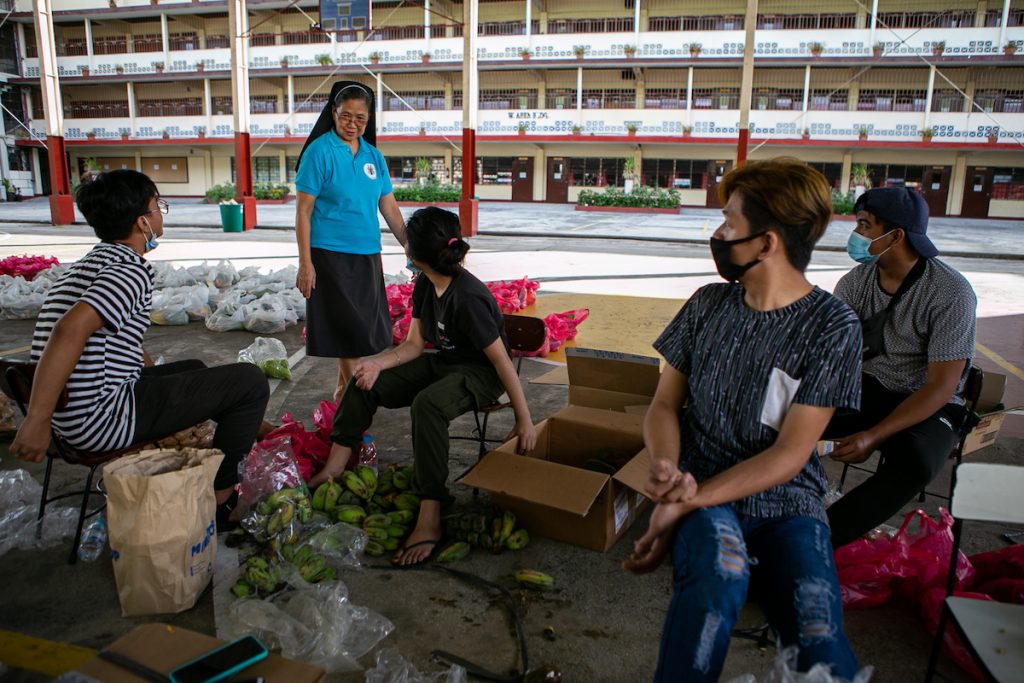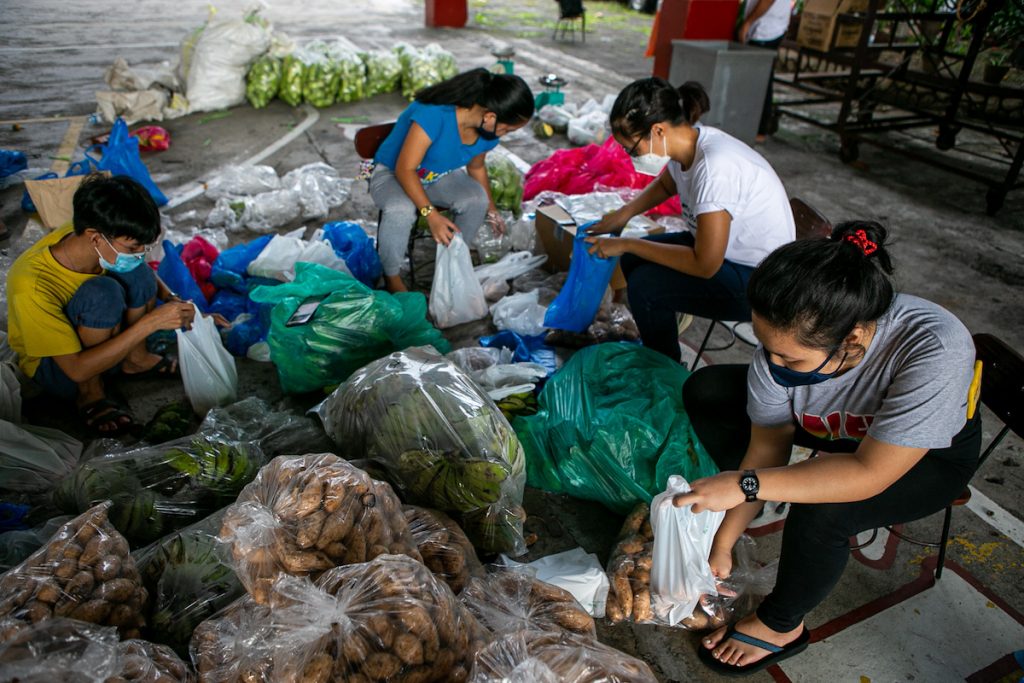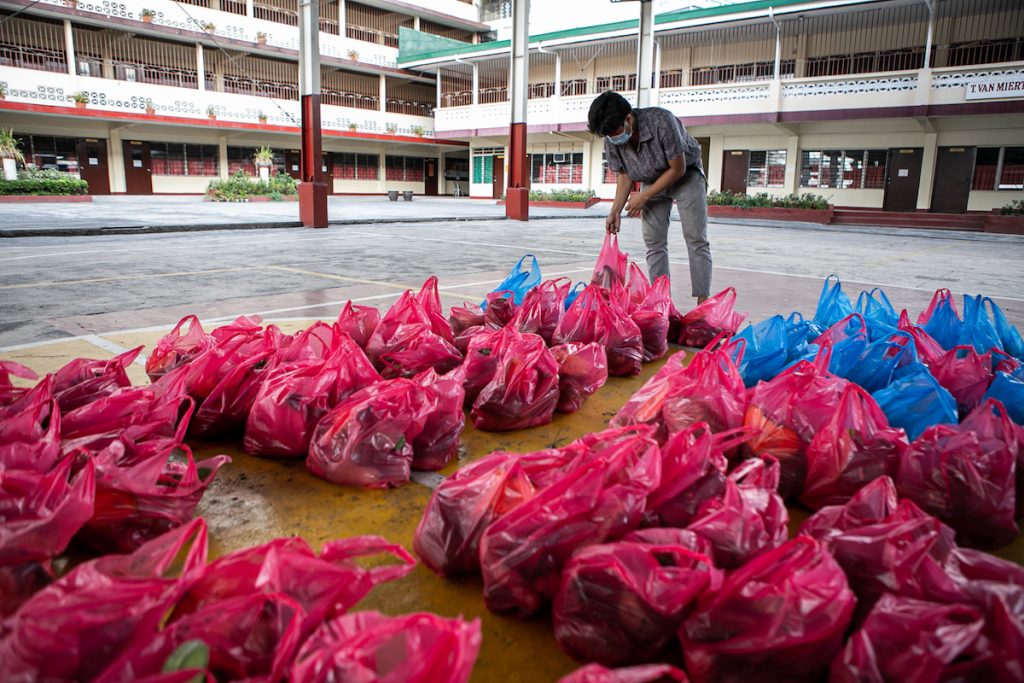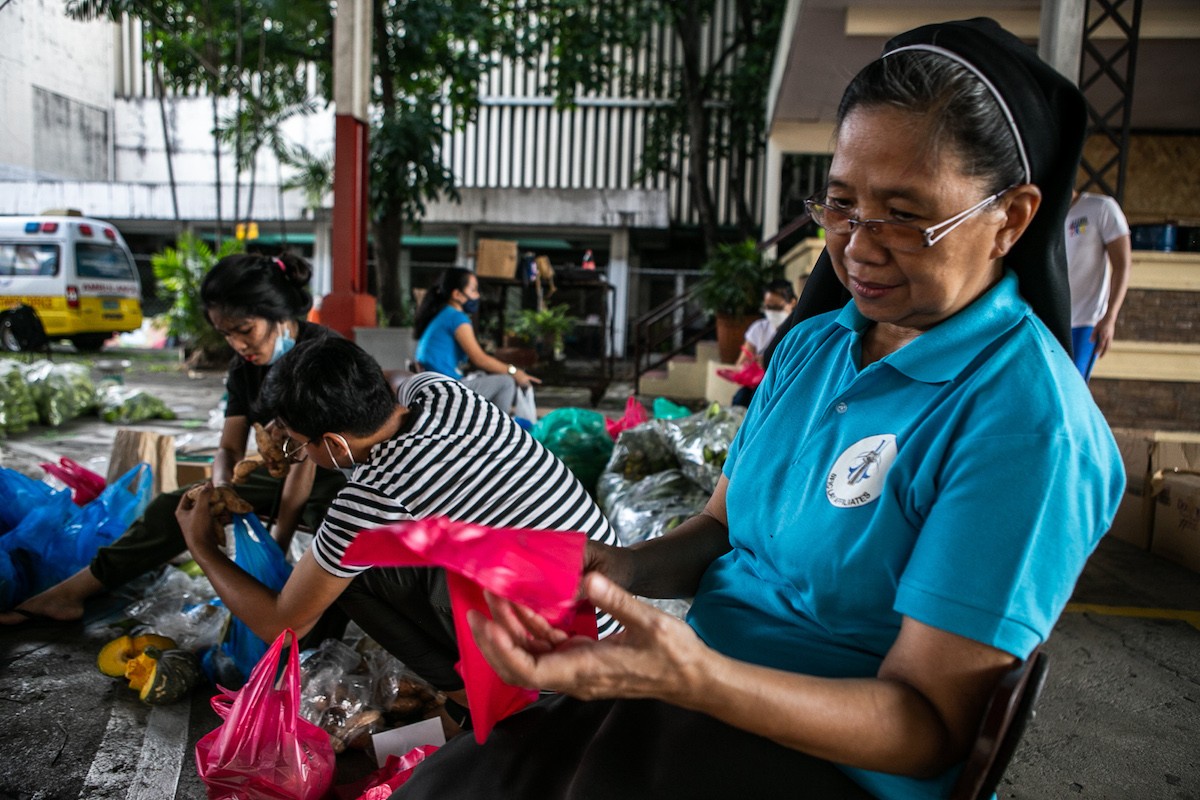The strict quarantine measures imposed in the Philippine capital during the early days of the pandemic in March caused sleepless nights for a Franciscan nun.
Sister Susan Esmile said her heart missed a beat when she learned about the lockdown that has displaced thousands of people who lost their jobs.
“How can we help if we are also facing economic challenges?” was the first thing that came to her mind.
The central house of the Franciscan Sisters of the Immaculate Conception in Quezon City is an aging religious community of 30 nuns.
Most of them are elderly, considered “high-risk” for COVID-19 transmission, and restricted from going out of the convent under the government’s quarantine protocols.
Sister Susan, 62, admitted that even before the onset of the pandemic “the community is already struggling with our finances.”
A huge chunk of their annual budget goes to medical expenses and for the healthcare needs of the elderly members of the congregation.
St. Joseph’s College, which the congregation runs and its main source of income, is also suffering because of the low number of enrolees.
“This year is even worse,” said Sister Susan. “There will be fewer students because of the health crisis and the adjustment in the teaching and learning methods.”

Despite the limitations, the nun said they are starting to look for other means to provide for those who are most in need and those displaced during the health crisis.
“We have literally no money on hand to initiate our own program, that’s why I called on some organizations and offered our facility and manpower,” Sister Susan told LiCAS.news.
In March, the nuns offered their convent to the faith-based youth organization 2KK as venue for the repacking of relief goods that would be distributed in urban poor communities.
Christianne Santos, 2KK chairwoman, said the nuns “played a crucial role” in the delivery of aid to communities affected by the strict stay-at-home measures.
“We cannot call for volunteers to work because of the restrictions. If not for the sisters, we were not able to deliver the aid,” she said.
Every week, the nuns’ Central House receives deliveries of rice, vegetables, and other food items from 2KK. The nuns then prepare the goods into emergency relief packs.
Members of 2KK then take the relief items from the convent and distribute it to poor communities.
“There were a lot of instances that I went with the team to distribute the aid,” said Sister Susan.
“I need to go out and see the community, talk to people, and listen to what they say,” she said.
The Franciscan sisters’ collaboration with 2KK was just the start.
After several days, donations and support started to come in, allowing the nuns to initiate their own aid response.
“After people from different sectors saw what we’re doing, they began to give monetary and non-monetary contributions for the families affected by the lockdown,” she said.

The mission continues
In May, Philippine church leaders admitted that the lockdown has “tremendously affected” the finances of many churches and religious congregations in the country.
Some dioceses and religious institutions had to use their savings, which were allotted for internal or organizational expenses, to help those in need.
The worst impact of the pandemic on the economy is still to be felt, but church leaders said they expect that they will be among those most affected.
Economic experts forecasted that some countries in Asia, including the Philippines, might not recover their economies until 2022, especially if a second wave of the pandemic hits.
In June, the World Bank said the COVID-19 global recession is expected to be twice as bad as the 2009 financial crisis and the worst global recession since World War II.
Franciscan priest Angel Cortez, executive secretary of the Association of Major Religious Superiors in the Philippines, said the Church’s “mission for the poor will continue” despite the hard times.
“The apostolate will continue,” he said. “The mission and social works will not stop, not because the Church has all the wealth but because we are beggars,” added the priest.
He said religious orders are keen to “begging and giving.”
“We beg to give it to the needy. We are merely conduits or channels or bridges of resources that are intended for the least, the lost, and the last in society,” he said.

Father Cortez said many religious congregations were formed to address “a certain need of the time.” He said Church charity institutions were also created because there was “a need to respond.”
“A Church, as a group of people, sprouts where there is poverty, injustice, and crisis. For more than two millennia, the Church has a history of stepping up in times of crisis,” he said.
Father Cortez also pointed out that “resources” are not all about finances. He said the Church possesses the very important resources in the world, especially during a crisis.
“The Church has a great number of human resources, its people, who have the time and talent that can be used to advance the wellbeing of the people, especially the poor,” he said.
He said the lay people — doctors, economists, civic leaders, healthcare experts, humanitarian and development workers — who are the “most important resources on our way to recovery.”







